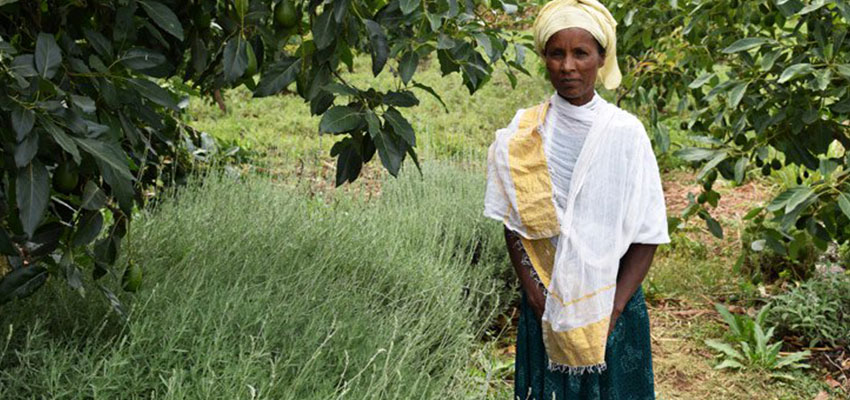
Article as posted on The Africa Report
A small start-up has developed a niche in providing organic produce grown by smallholders to markets in places like London and Dubai.
The label ‘Grown in Ethiopia’ is not yet common on supermarket shelves across the world, but one day it may be. That, at least, is the goal of GreenPath Food, an Ethiopian horticulture start-up founded in 2015 by former staff of the government’s Agricultural Transformation Agency.
GreenPath is Ethiopia’s first certified organic fruit and vegetable producer. It works with more than 150 smallholder farmers across more than 80ha in the district of Butajira in the fertile south. In exchange for growing fruit and vegetables on between a third and half of their plots, the company trains farmers to complete European Union organic certification.
In addition, the farmers receive credit for inputs like seeds, and, most importantly, market access. “A huge proportion of the farmers already have what it takes to grow export-quality produce,” says sales manager Ele Gower. “The issue is really the lack of links to global markets.” An average distance of 44km to the closest road keeps many farmers and the produce they grow isolated.
Through purchase agreements, GreenPath aims to bridge the gap between Ethiopia’s remote smallholders and conscious consumers in Europe, the US and the Middle East. It also aims to boost productivity.
With a dedicated staff member for every 25 farmers, each receives a visit from an agronomist at least every three weeks, with advice on crop selection and farm management. Such is the demand for GreenPath’s services around Butajira that the company has temporarily stopped taking on new partnerships with farmers.
Intercropping
The company’s anchor crop is avocado, and most of the farmers switch to it from staples such as maize. But the emphasis is firmly on biodiversity and intercropping. At least four crops are grown on each farm, since a varied portfolio better protects farmers against shifts in both markets and weather.
“The big idea is to make the smallholder plot as productive as possible,” explains co-founder Jacie Jones. “Intercropping makes the land more resilient to climate change and crop failure […]. People might think it’s this warm, fuzzy, environmental thing but actually it’s very practical.”
GreenPath is making two key bets: the first is that the future of Ethiopian agriculture lies primarily with smallholders rather than with large-scale commercial farms, and the second is on the value of organic-certified produce.
Small is good
Large-scale farms have attracted considerable international attention – and capital – in the past decade but the sector has been plagued with difficulties. Commercial land deals in Ethiopia have often provoked anger among communities whose plots were expropriated without adequate compensation.
Intensive monocropping also damages soil fertility, which reduces productivity in the long-term. GreenPath reckons both can be avoided. “Smallholder farmers are perfectly capable of producing very high-quality products without tearing up their hedgerows and consolidating with other farms,” says Gower. “So we are supporting people to grow on their own land, where they have always lived.”
Organic farming, too, should produce social as well as environmental advantages. One hope is that the higher premiums translate into higher earnings for the farmers themselves. This is by no means a certain outcome: a recent study of the organic and fairtrade coffee industry in Ethiopia found that, on average, less than a third of the price premiums realised at the export level were passed onto farmers.
However, GreenPath says its farmers receive on average 22 birr ($0.76) per kilogram of produce – about twice what a non-partner farmer might earn. Jones explains that GreenPath was in part inspired by “the huge amount of organic land in Ethiopia […] most of our farmers already have default organic land.”
"GreenPath hopes to spread across East Africa within the next three years."
When this is so, certification – usually a three-year process – can be done in a matter of months. Moreover, she adds, the competitive advantage of smallholders in organic farming is a direct function of size: “We can grow products which require more diligent care and which would be too expensive to pay for on a larger scale.”
It recently closed a $2m investment round and is searching for more land in southern Ethiopia. In May, it opened a new site in Butajira – including a packhouse, cold storage, nursery and drying facilities – which will allow it to triple the number of farmers on its books by 2020.
The company ships fresh fruit and vegetables to London, Amsterdam and Dubai, and herbal teas and botanical ingredients to Britain and the US. Negotiations with supermarkets are under way.
There are, of course, challenges. One is finding the right area for expansion: “It needs to be remote enough for us to be a value proposition for smallholder farmers, but also close enough to Addis Ababa to be logistically possible,” says Jones. Another is introducing new, high-value produce: Ethiopia’s stringent regulations make it easier for large exporting farms to grow new varieties. Commercial farms also get duty-free benefits based on their land size.
Bottom line:
Ultimately GreenPath’s ambition is to turn organic Ethiopian produce into a consumer brand. “Fruit and vegetable is the only fast-moving consumer good in supermarkets which is unbranded,” says Gower. This presents perhaps the toughest, but most inspiring, challenge: to create “a sense of excitement around the story of the farming families where the produce has come from.”
More information
GreenPath Food (a 2015 D-Lab Scale-Ups Venture)

